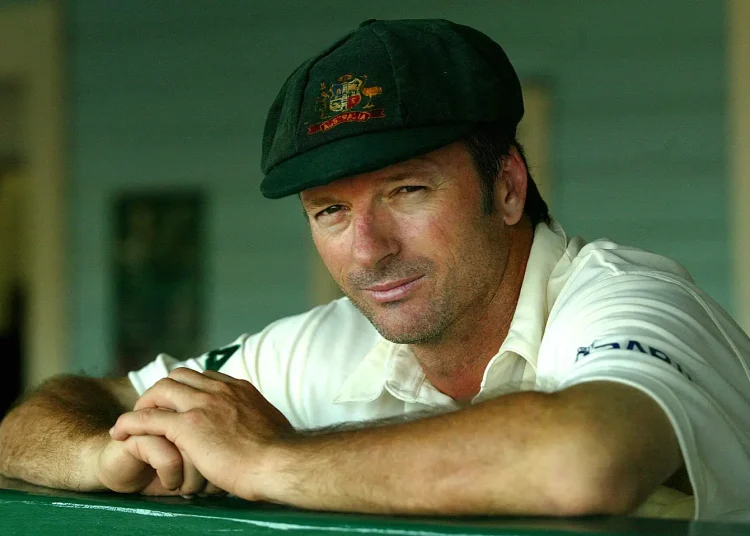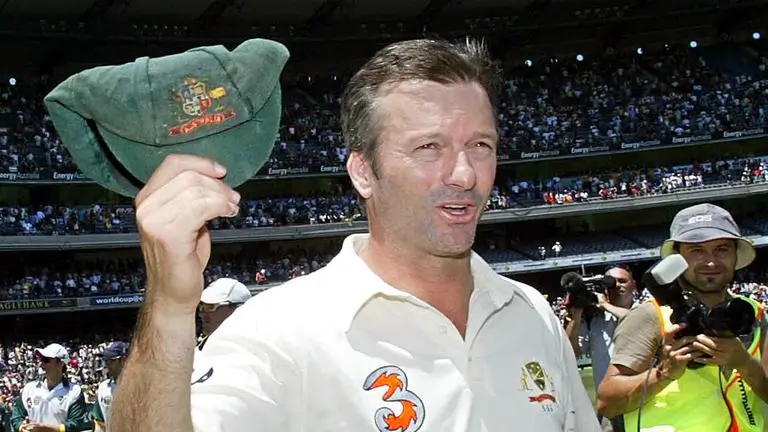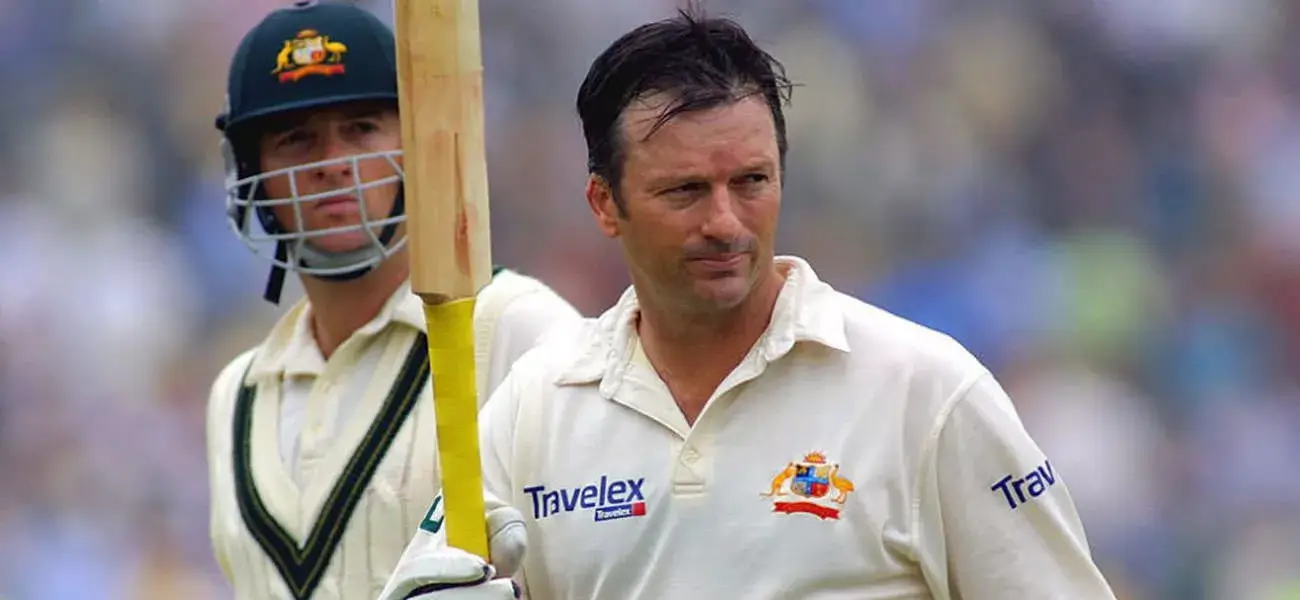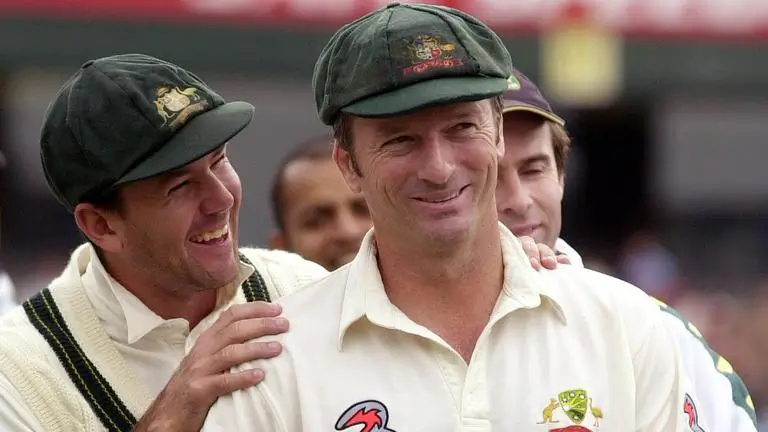Steve Waugh is a famous Australian cricketer. He captained the Australian cricket team from 1999 to 2004. His leadership shone in tough moments. Waugh led Australia to the 1999 Cricket World Cup win. He also set a record with 16 consecutive Test wins. His calm nature helped in pressure situations in cricket. This article explores his journey. It looks at key matches where he thrived.
It also covers his cricket leadership styles. Waugh’s story inspires young players. His ability to handle pressure is legendary. From early struggles to big wins, he showed how to lead. His legacy lives on in cricket. Learn how Waugh turned challenges into famous cricket comebacks. His lessons are simple but powerful. They apply to sports and life.
Building Leadership: Waugh’s Early Years
Steve Waugh began playing for Australia in 1985. He was a talented batsman. He also bowled well. Early on, he faced big challenges. In 1990, he was dropped from the team. This was tough for him. But Waugh worked hard. He improved his skills. By 1997, he became vice-captain. In 1999, he took over as Australian cricket captain. His first series was a success. Australia won the 1999 Cricket World Cup. This showed his leadership in cricket. and made players like Adam Gilchrist and Glenn McGrath.
Stats
| Batsman Name | SR Waugh |
| Nation | AUS |
| First Played | 1986 |
| Last Played | 2002 |
BASIC STATS AND RANKS
| PARAMETER | STAT | RANK | RATING LINK |
|---|---|---|---|
| Runs | 7569 | 38 | Top 25 In Runs |
| Average | 32.91 | NI 50 | Top 25 In Ave |
| Relative Average | 35.63 | NI 50 | Top 25 In Ave |
| Strike Rate (SR) | 75.85 | NI 50 | Top 25 In SR |
| Relative SR | 80.85 | NI 50 | Top 25 In SR |
| Big Innings Potential (NWT) | 97.86 | NI 50 | Top 25 In BIP |
| Quick Innings Potential (NWT) | 150.68 | NI 50 | Top 25 In QIP |
Waugh learned from tough times. His early failures taught him resilience. He watched leaders like Allan Border. Border showed him that teamwork matters. Waugh’s Steve Waugh captaincy record is impressive. He led Australia to Test match victories worldwide. His style was aggressive. He pushed the opposition hard. Even before captaincy, he shone. In 1995, he scored 200 in Jamaica.
This helped Australia beat the West Indies. In 1997, he scored twin centuries in England. These were Steve Waugh’s best innings built his reputation. They showed he could handle pressure situations in cricket. Waugh’s early years shaped his leadership. He became a captain who thrived under stress.
Overcoming Early Struggles
Waugh’s 1990 drop from the team was hard. He felt disappointed. But he didn’t give up. He trained harder. He focused on batting, and this made him smarter. When he returned, he was stronger. His comeback showed his mental strength. This quality helped him later. As captain, he used these lessons. He taught his team to stay tough. His early struggles built his leadership in cricket. They made him a better Australian cricket captain.
Thriving in Tough Matches
Waugh’s leadership was best in tight games. He led Australia to famous cricket comebacks. One key match was the 1999 World Cup Semi-Final. South Africa scored 271. Australia lost early wickets. Waugh came in with 200 runs needed. He stayed calm. He hit two sixes late. His 56 runs won the game. This showed handling pressure in sports, like Australia always does in ICC Events.
In 1999, at Headingley, England set 389 to win. No team had chased so much in Tests. Waugh scored 137 not out. His innings had 20 fours. He guided Australia to victory. This is a top Test match victory. Waugh’s belief was key. In 2000, in Wellington, Australia was 51 for 4. Waugh scored 151 runs. His long innings saved the game. Australia won by 281 runs. These matches highlight Steve Waugh’s captaincy record like Ricky Ponting’s success. Waugh’s leadership turned losses into wins. His calm decisions inspired his team. He made pressure situations in cricket look easy.
The Headingley Miracle
The 1999 Test at Headingley was historic. England set Australia 389 to win. Most thought it was impossible. Waugh, the Australian cricket captain, disagreed. He scored 137 not out. His innings was patient. He hit 20 fours and a six. His partnerships with Slater and Ponting were crucial. When he reached 99, he hit a six. This showed his boldness. Gilchrist finished the chase. Australia won by eight wickets. This famous cricket comeback showed Waugh’s leadership. His belief made the team strong.
Smart Tactics and Cool Head
Waugh’s cricket leadership styles were unique. He was tough but fair. He led by example. His batting saved many games. This motivated his team. He valued every player. Stars like Warne and young players like Michael Clarke felt included. Waugh said, “Pressure is a privilege.” He saw tough moments as chances to shine.
His tactics were clever. In the 1999 World Cup, he used bowlers smartly. He restricted strong teams. In Tests, he set tricky fields. This forced batsmen to err. Waugh also focused on mental strength. He hired coaches for this. It was new then. His team became mentally tough. They expected to win. Waugh’s aggressive style pressured opponents. He created a winning vibe. His Australian cricket team’s success came from this. Even in pressure situations in cricket, he stayed calm. His leadership made Australia unbeatable, like New Zealand’s domination in ICC Events. Waugh’s tactics are still studied today.
Staying Strong Mentally
Waugh’s mental toughness was key. He never quit. In 2003, in Adelaide, he scored 103 not out. He batted for hours. This saved a Test match. He taught his team to fight against teams like England. They believed they could win. In the 2003 World Cup, a bowl-out happened. Waugh kept his team focused. His calm nature helped in handling pressure in sports. This made him a great Australian cricket captain.
Lasting Impact on Cricket
Waugh’s leadership changed Australian cricket. His team dominated the world. They won the 1999 World Cup. They also won in 2003. In Tests, they beat everyone. Waugh’s Steve Waugh captaincy record is amazing. He won 41 of 57 Tests. His team won 20 of 36 ODIs. He built stars like Ponting and Gilchrist. They became leaders, too, and have been part of many upsets like Zimbabwe beating India in 2024.
Waugh created a winning culture. His team believed they were the best. This lasted after he retired. Australia stayed strong for years. His Test match victories set records. The 16 consecutive Test wins are historic. Waugh’s charity work also shines. He helps kids with cancer.
This shows his leadership off the field. His Australian cricket team’s success inspires players today. Waugh’s lessons on leadership in cricket are timeless. He showed how to turn pressure into victory and made players like Shane Warne.
Shaping Future Leaders
Waugh mentored young players. He supported Ricky Ponting. Ponting became a great captain. Adam Gilchrist also grew under Waugh. Michael Clarke learned from him, too. Waugh gave them chances. He built their confidence. This helped Australia stay strong. His leadership in cricket created a legacy. Future captains followed his style. They learned how to handle pressure in sports from him. Waugh’s impact is still felt as he was the godfather of cricket.
Conclusion
Steve Waugh was a true leader. He thrived in pressure situations in cricket. His famous cricket comebacks are legendary. From the 1999 World Cup to Test match victories, he led with calm. His cricket leadership style inspired his team. Waugh’s Australian cricket team’s success set records. His 16 consecutive Test wins are unmatched. He built stars like Ponting. His legacy lives on.
Waugh said, “Pressure is a privilege.” He proved it every time. His story teaches us to stay strong. It shows how to lead in tough times. For young cricketers, Waugh is a hero. His leadership in cricket is a guide. It applies to sports and life. Steve Waugh’s career is a lesson in winning under pressure.














